Fictional Magic Systems Can Go Beyond Rules and Reveal Deeper Characters
I have a confession: I don’t really like fantasy blockbuster author Brandon Sanderson’s sliding scale of magic systems.
To be clear, I don’t disagree with Sanderson’s laws of magic. In fact, I think they showcase principles other fantasy writers should understand. But I do take issue with how Sanderson presents and expounds his first “law” in his famous essay. 1
To explain my reasons takes two articles. Part 2 appears here. You can also explore my series about Matters of Myth.
Sanderson divides magic between ‘hard’ and ‘soft’ systems
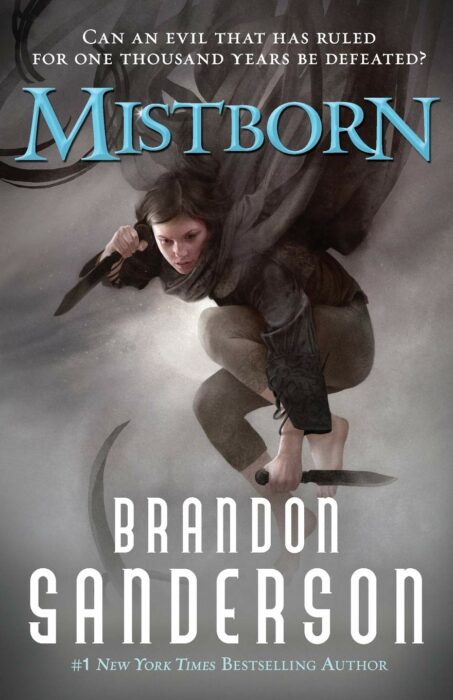
In Sanderson’s Mistborn series, magic hinges on a Newtonian push/pull mechanism.
Sanderson’s first law of magic systems states:
An author’s ability to solve conflict with magic is DIRECTLY PROPORTIONAL to how well the reader understands said magic.2
After Sanderson introduces this principle, he places magic systems into one of two categories (leaving room for gray areas): hard systems and soft systems.
In hard systems, “the authors explicitly describes [sic] the rules of magic,” whereas soft systems appear in “books where the magic is included in order to establish a sense of wonder and give the setting a fantastical feel.”3
Here I begin to see Sanderson’s own bias (and he admits to this, despite saying he enjoys books across the spectrum). By using the terms “hard” and “soft,” he has created a system of qualification inherently skewed toward the magic style he prefers to write and read: “hard” magic. This skewing seems unintentional, but it is bound to the terms Sanderson uses.
For this reason, I prefer the terms implicit and explicit. This change discards the subtle snobbishness of Sanderson’s hard vs. soft categorization.4 My terms also tie into Sanderson’s own definition of hard magic, by making the rules explicit.
What I mean by implicit versus explicit fictional magic systems
To rephrase Sanderson in these new terms, an implicit magic system’s rules are rarely laid out systematically. You may understand the system’s principles, such as the idea that “love is the most powerful magic.” But the system never offers a Sanderson-level treatise on the physics of this magic.
Such explanations belong to explicit magic. This system is a proper system, and one readers can understand almost as well as characters and authors understand.
Okay, but why do readers care?
Many of the best fantasy books (including many books that have had the most personal impact on me) are built on implicit magic: J. R. R. Tolkien’s Middle-earth legendarium. The Chronicles of Narnia. Howl’s Moving Castle. Jonathan Strange & Mr Norrell. N. D. Wilson’s 100 Cupboards series. The Harry Potter books. Naomi Novik’s Uprooted and Spinning Silver. Garth Nix’s Old Kingdom series. Patrick Ness’s A Monster Calls. Neil Gaiman’s Neverwhere.
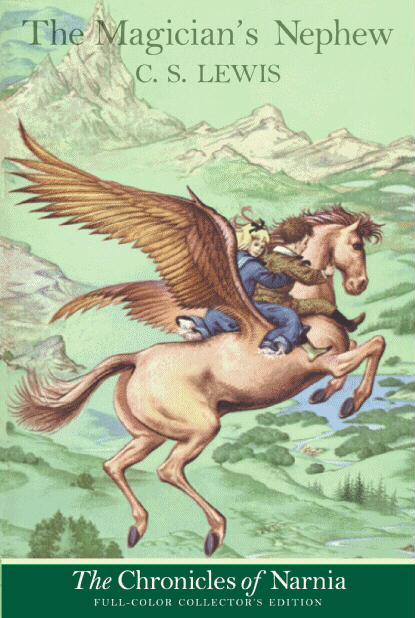 Some readers may disagree, and point to examples of well-defined magic or explicit magic systems in those stories. Yet a closer examination still supports my point.
Some readers may disagree, and point to examples of well-defined magic or explicit magic systems in those stories. Yet a closer examination still supports my point.
Any magic in Narnia or Middle-earth is kept implicit
To start with the easy examples: Our understanding of Narnia’s magic is very limited. Yes, the Narnia books contain a great deal of magic, but never make the magic itself their point. Magic only serves to build up the stories, such as getting the children out of England, creating problems from witches, bringing deep issues to the characters’ awareness. Still, the magic itself never overtakes the story. Narnia’s magic never becomes its own character, like magic could in an explicit system.
Sanderson says magic in a soft/implicit story exists to “establish a sense of wonder.” That seems a very narrow interpretation of books like Narnia. As a reader, I don’t feel only wonder as these books’ chief effect. Instead I experience longing, which C. S. Lewis called sehnsucht. This word is more apt. Narnia offers refreshment of the spirit, like drinking from a well after laboring in the sun. Toward this end, Narnia’s magic is more than window dressing. Indeed, you could hardly have Narnia without Aslan and his power holding it all together. But the Narnian chronicles only tell us as much as we need about Narnia’s magic.5
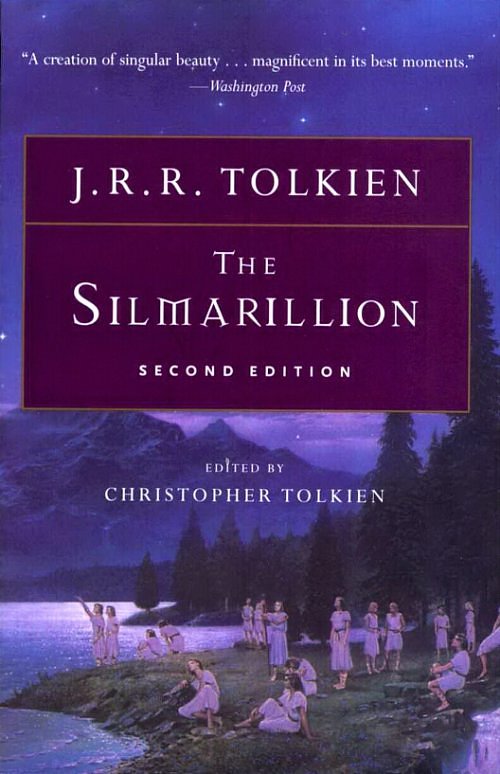 Tolkien’s world also offers us a great deal of magic, especially in The Silmarillion. These earliest myths of Middle-earth treat us to Ilúvatar’s creation of the universe via the Ainur’s voices. We sense a great deal more power reading this account of bygone ages when angelic beings made war on the face of Middle-earth. Yet even these accounts do not present magic in explicit terms. We don’t know how Melian set her veil around the boundaries of Doriath so evil could not enter, any more than we understand the making of the magical items such as the Rings of Power and the Silmarils. We are simply told that beings, who knew how to make such things, made them. When I was younger, I often wanted more, and even longed for Tolkien’s magic to be more explicit. Today I see better the reason this isn’t made clearer.
Tolkien’s world also offers us a great deal of magic, especially in The Silmarillion. These earliest myths of Middle-earth treat us to Ilúvatar’s creation of the universe via the Ainur’s voices. We sense a great deal more power reading this account of bygone ages when angelic beings made war on the face of Middle-earth. Yet even these accounts do not present magic in explicit terms. We don’t know how Melian set her veil around the boundaries of Doriath so evil could not enter, any more than we understand the making of the magical items such as the Rings of Power and the Silmarils. We are simply told that beings, who knew how to make such things, made them. When I was younger, I often wanted more, and even longed for Tolkien’s magic to be more explicit. Today I see better the reason this isn’t made clearer.
Lewis and Tolkien both operate in a mythic frame of mind. Their view of story was steeped in ancient and medieval literature. They thrived on fairy-stories as well as writing them. 6 In this mythic mindset, in which magic is accepted but not deeply delved, we find partial explanations for the appeal and power of implicit magic systems. These subtler systems tap deeply into the human spirit. There we know such things are true and possible—and as Christians, our most sacred Story is filled with such possibilities, even if we never fully understand their fullness.
How we define implicit magic in a fantasy myth
Here let us pause to revise our definition of implicit magic: An implicit magic system relies on a mythic mindset rather than a series of hard and fast rules.7 This implicit system is more concerned with spiritual or emotional logic—that is, “It works because it feels right”—than with physical logic—that is, “Well, we know that pyromancers need fire, so where does the fire come from?”).8
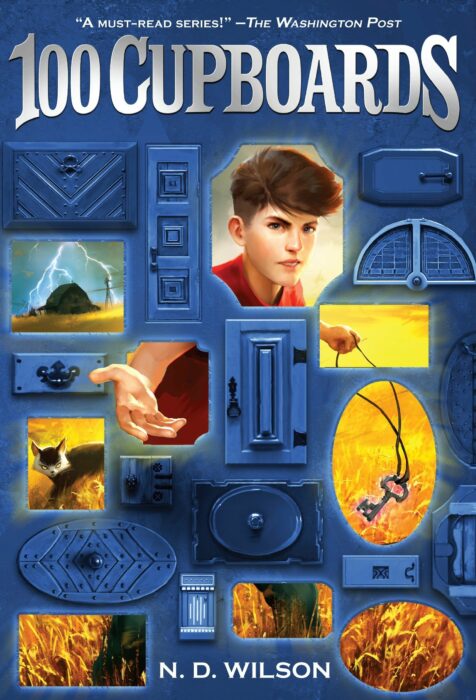 Exploring modern examples of implicit magic in fiction
Exploring modern examples of implicit magic in fiction
This sort of emotional logic is deeply rooted in the magic of N. D. Wilson’s 100 Cupboards trilogy. In fact, it was a love for these books that first drove me to dig into my issues with the hard vs. soft terminology. 9 Wilson’s books are anything but soft. They dig into human nature, and present moments of terror and horror when dark things come calling. They present emotion in a true way. And yet Wilson’s fictional magic is far distant from Sanderson’s. Wilson establishes rules, but (as in Lewis and Tolkien), we don’t get to know most of them. Henry’s magic, especially in the second and third 100 Cupboards books, operates on a mythic level. No, Henry is not overpowered compared to his enemies. But when we read him finding solutions to his problems, we feel an emotional resonance. These story turns feel right as much as they are right mentally or ethically.
Naomi Novik’s adult fairy tales, Uprooted and Spinning Silver, operate with similar emotional logic. Although Spinning Silver tends more toward an explicit magic system, readers may remember better the story’s deeper resonance of characters’ choices. In Spinning Silver, main characters rarely meet their world’s magical aspects head-on, with full knowledge of what they see. Even Miryem, ostensibly the story’s main character and titular silver-spinner, doesn’t really have a Sanderson-level understanding of the magic she grows into by the novel’s end. Rather, she must feel her way through this magic. Even when her icy Staryk captor attempts to guide her along the way, she doesn’t understand his directions.
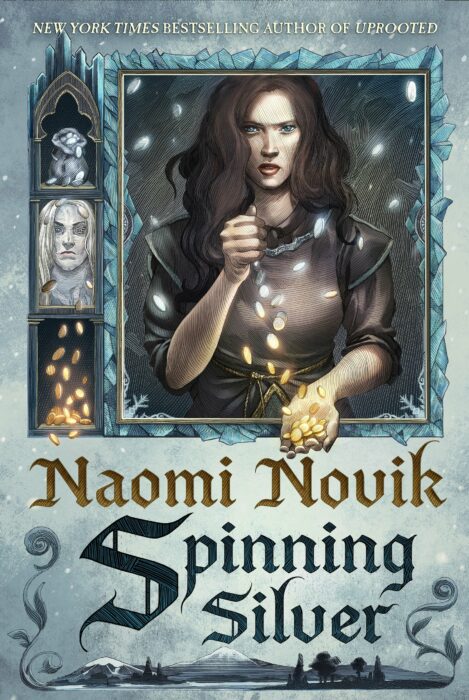 Readers may find the book’s emotional and mythic resonance in this quote:
Readers may find the book’s emotional and mythic resonance in this quote:
“There are men who are wolves inside, and want to eat up other people to fill their bellies. That is what was in your house with you, all your life. But here you are with your brothers, and you are not eaten up, and there is not a wolf inside you. You have fed each other, and you kept the wolf away. That is all we can do for each other in the world, to keep the wolf away.”
By the story’s end, it doesn’t matter that Miryem and her allies outsmart the evil Czernobog with magic. More importantly, they’ve fed each other and kept the wolf away. It is the rightness of characters’ actions or solutions, not their cleverness relating to the world’s magic system, that brings home Spinning Silver’s resolution.
I expect this emphasis from Novik because her previous fairy-story, Uprooted, is founded on the dichotomy between implicit and explicit magic. Its main character, Agnieszka, becomes pupil to a wizard known only as the Dragon. The only problem is that all of his rules and regulations don’t work for her. The magic only works when she pursues an instinctive path—one that fits implicitly rather than forcing itself upon the world. This struggle between instinctive and prescriptive magic forces Agnieszka, the Dragon, and the other royal wizards to confront their own preconceived notions of how magic should work. Their struggle also drives forward the story’s main conflict—a battle with the sentient Wood for control of the kingdom—because Agnieszka’s methods are instinctive. She attempts to save people beyond saving and to heal things that others would consign to perdition.
Next month: Go deeper into the emotional logic of implicit magic
On March 4, we will dive into more of my favorite implicitly magical books. We will explore how they do and don’t exhibit this mythic mindset that makes such implicit magic systems work.
- See “Sanderson’s First Law,” undated article from BrandonSanderson.com. ↩
- Ibid. ↩
- Ibid. ↩
- This elitism carries over to some degree from the categorization of “hard” sci-fi. It’s better because it’s concrete, the term implies. ↩
- Some readers have said this makes Aslan’s resurrection feel a cheat because the story doesn’t hint until later about the existence of the Deeper Magic. I am sorry they feel this way. For me, this is more like Tolkien’s eucatastrophe: that sudden, joyous turning when all hope seems lost. ↩
- See Tolkien’s famous essay “On Fairy-stories.” ↩
- We might sometimes call this a mindset of wonder, but that word still does not quite fit. A sense of wonder is not necessarily present in, for example, Tolkien’s “Sellic Spell,” a fairy-story version of the Beowulf epic. But that story nevertheless has power to move us because of its mythic style. ↩
- Incidentally, one of the dumbest things in the ill-fated live-action adaptation of The Last Airbender (2010). In that film, the filmmakers “nerfed” the dangerous Fire Nation by forcing its soldiers to carry their own fire, whereas the original animated series’ showed them always able to produce fire from their own energy. When you have an explicit magic system that works, don’t break it. ↩
- See the original version of this article, “Implicit vs. Explicit Magic, Or Why I Respectfully Disagree with Sanderson’s First Law,” June 26, 2017, at ElijahDavidAuthor.blogspot.com. ↩

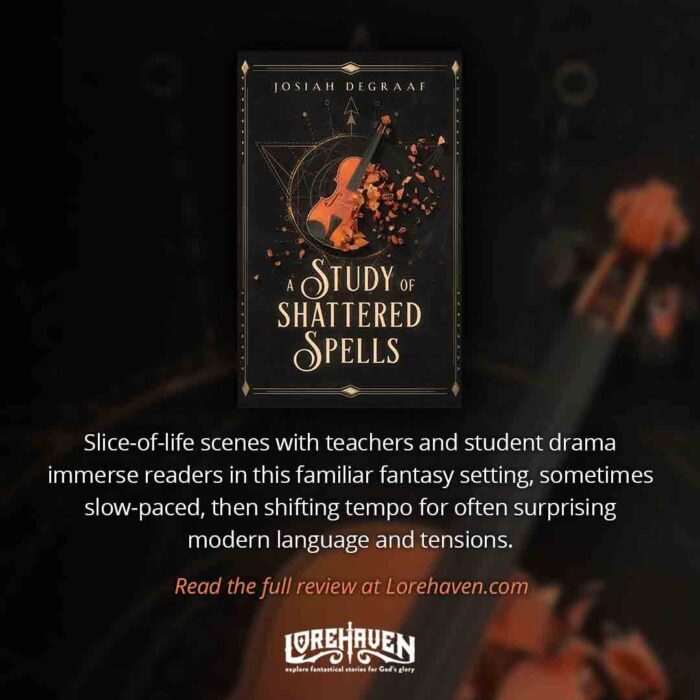































Love the article, Elijah! I completely agree with you. I probably fall somewhere between the two categories in my writing. And cool to see you’re in Chattanooga. I’m just up I-24 from you in Manchester.
I wonder can I have both magic systems in a fantasy story? Like say the witch and wizard are the explein everything, info dump nobody likes and that keeps them in the “lowest of the low” and the Magi and Mages be more mythical be the “top dog”. Because that’s what I want for my story.